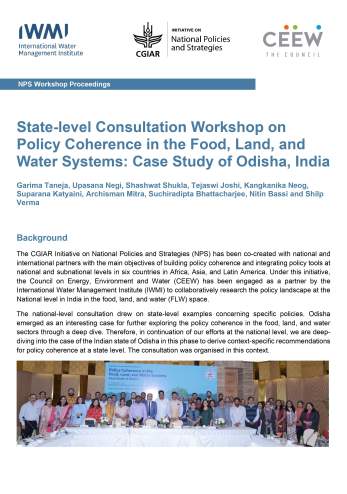



CEEW and IWMI
January 2024 | Sustainable Water
Suggested citation: Council on Energy, Environment and Water (CEEW); International Water Management Institute (IWMI). 2023. Evaluating policy coherence in food, land, and water systems: Evidence from India. Colombo, Sri Lanka: International Water Management Institute (IWMI). CGIAR Initiative on National Policies and Strategies. 124p.
This report presents insights into the broader food, land, and water (FLW) policies landscape in India to guide policymakers, researchers, and other stakeholders towards coherent and effective governance of natural resources. A policy coherence framework was developed and used to analyse the selected seven national policies covering FLW systems that had a combined average annual expenditure of INR 39,550 crore during the last three years.
It is recognised that there are key transitions in the policy landscape in India toward sustainable management of water resources and shifts in the agriculture production system towards climate-resilient practices. To address any tradeoffs of such transitions, the report highlights priorities for informing the key stages of the policy cycle and offers evidence-based recommendations to enhance policy coherence in FLW systems in India.
India needs to design coherent policies as it is crucial to take adequate measures for advancing the sustainability of water, food, and land systems. By identifying the most suitable institutional arrangements, coordination mechanism, and scope of convergence of efforts and resources, policy coherence acts as a major pathway to strengthen implementation and revitalise global partnerships for sustainable development.
The critical interlinkages among the food, land, and water (FLW) systems are complex and context-specific. There is a gap in the understanding of policy coherence in India, primarily due to the unavailability of adequate data at the sub-national level and there has been limited research on how policies governing one resource have deep implications for the other linked resources. Regular revisions of the policy guideline can lead to inclusion of the emerging policy-relevant evidence.
The evidence-based approach in policy-making is a method that is used for supporting policy decisions with policy-relevant evidence. Such evidences are collected through in-depth research and consultations with key stakeholders. The evidence should be context-specific. The study on policy coherence has undertaken a consultative approach to collect key evidence from the context of India on key lessons, and best practices to enhance coherence among national policies.
To ensure the effectiveness of national policies and strategies, it is important to recognise mechanisms that enable coherence in food, land and water policies. These range from developing outcome-based indicators, regularly monitoring progress on these indicators and recognising inclusion of the vulnerable social groups through their participation in the policy processes. These strategies strengthen synergies between policies and overcome any points of incoherence.
Community participation encourages on-ground actions and continuation of the policy interventions beyond the duration of the policy. As the communities have diverse profiles, the nature of the participation also varies. Community participation has led to sustainable outcomes of the policy initiatives, such as sustainable groundwater management, and are important for long-term sustainability of resource management, and judicious use of resources.
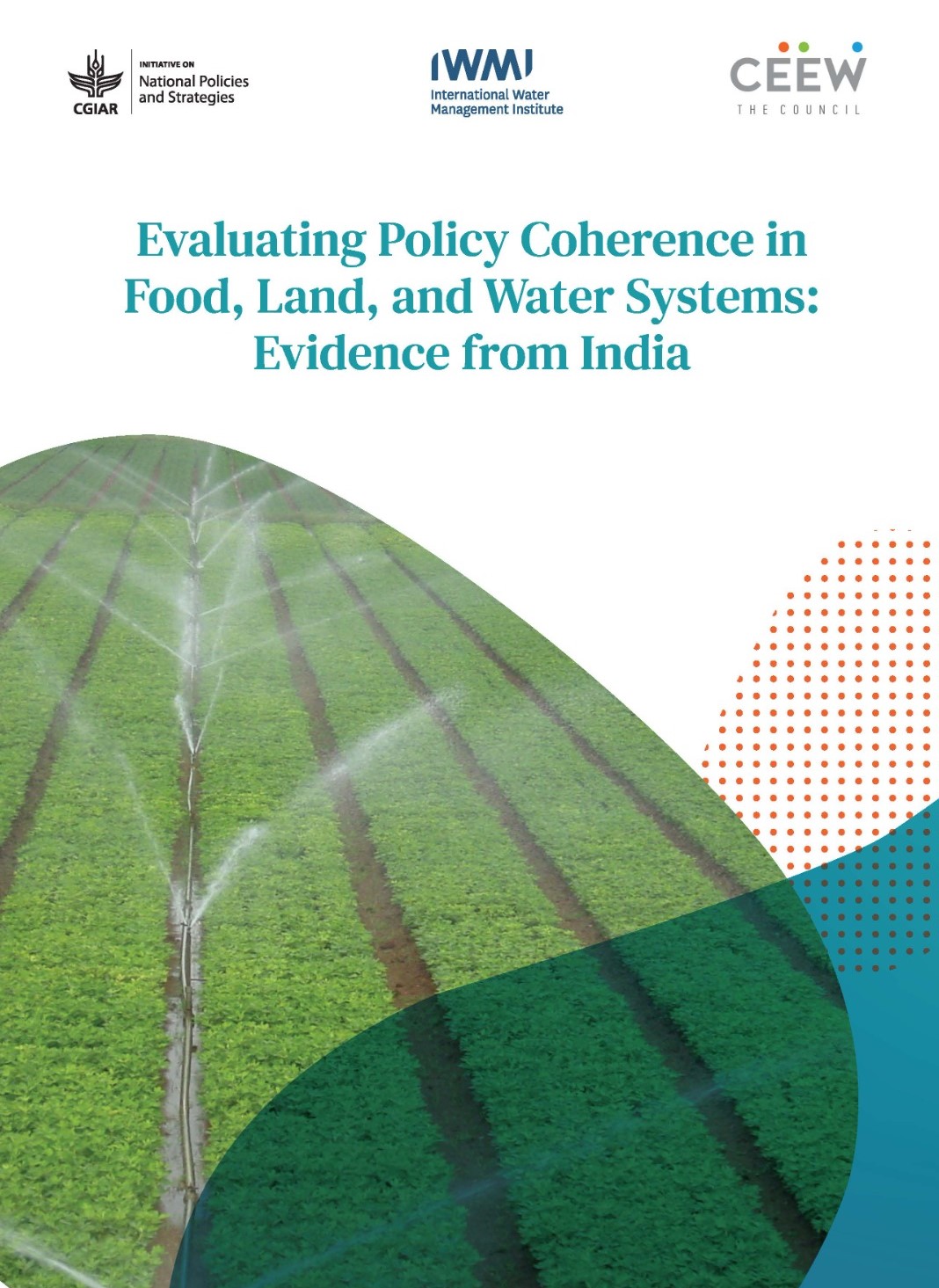
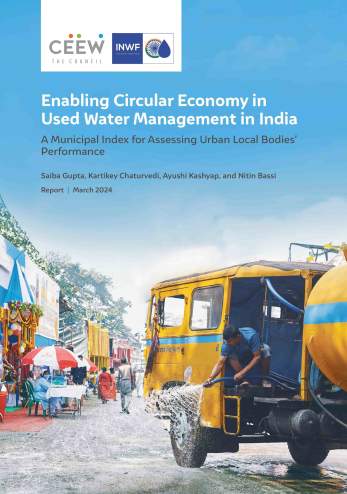
Enabling Circular Economy in Used Water Management in India
Saiba Gupta, Kartikey Chaturvedi, Ayushi Kashyap, Nitin Bassi
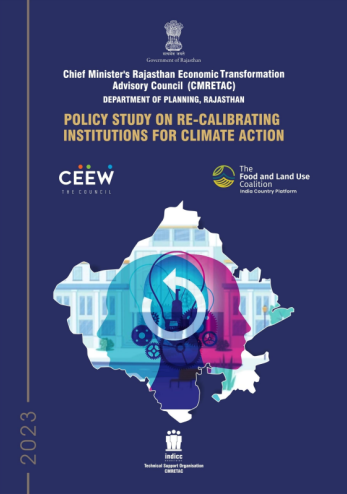
Policy Study on Re-calibrating Institutions for Climate Action
Sijo Abraham, Ekansha Khanduja, Shreya Wadhawan, Shravan Prabhu, Shanal Pradhan, Kartikey Chaturvedi, Gursimer Singh Gulati, Apoorve Khandelwal, Nitin Bassi
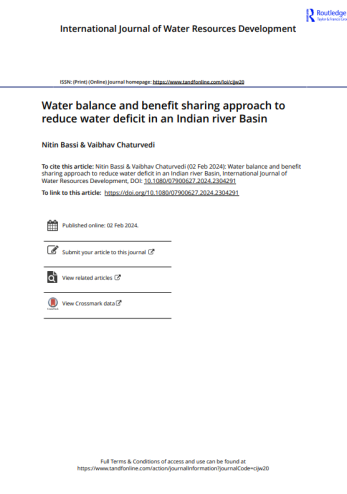
Water Balance and Benefit Sharing Approach to Reduce Water Deficit in an Indian River Basin
Nitin Bassi and Vaibhav Chaturvedi
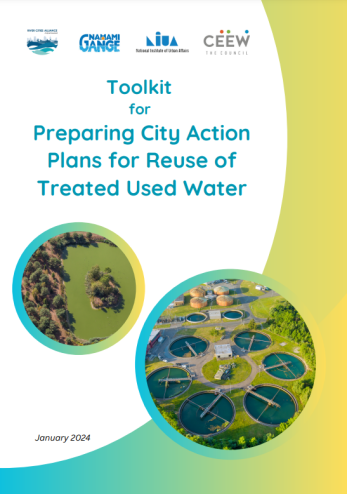
Toolkit for "Preparing City Action Plans for Reuse of Treated Used Water"
National Institute of Urban Affairs, National Mission for Clean Ganga and Council on Energy, Environment and Water

